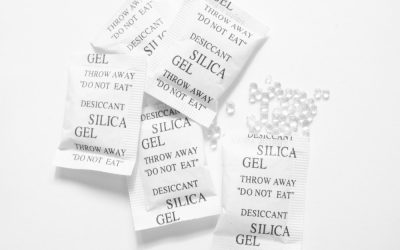Is Tea Tree Oil Safe for Dogs? What You Need to Know

Tea tree oil, derived from the leaves of the Melaleuca Alternifolia tree, is a widely recognized essential oil known for its antibacterial, antifungal, and antiviral properties. It has been used in various medicinal and cosmetic applications, from treating skin infections to enhancing overall skin health. Many individuals favor it for its natural healing properties and inclusion in holistic therapies.
However, while tea tree oil offers numerous benefits for humans, its safety for dogs is a topic of concern. Pet owners often ask, “Can I use tea tree oil on my dog?” or “Is tea tree oil toxic to dogs?” Understanding how this oil interacts with canine physiology is essential before considering its use on pets.
The Potential Dangers of Tea Tree Oil for Dogs
Despite its advantages for humans, tea tree oil can pose significant risks to dogs. The key issue lies in the fact that dogs metabolize substances differently than humans. Even small amounts of tea tree oil can lead to toxicity, with symptoms ranging from mild gastrointestinal distress to severe neurological complications.
The concentration of tea tree oil is a crucial factor. Many products vary in potency, and even diluted forms can be harmful if not used properly. Due to their smaller size and unique metabolism, dogs are especially sensitive to concentrated essential oils. Thus, pet owners must exercise caution when handling products containing tea tree oil.
Additionally, topical application on dogs can cause irritation or allergic reactions. Symptoms such as redness, swelling, and excessive itching may occur, making it imperative to consult a veterinarian before using tea tree oil on pets.
As Barri J. Morrison, DVM described in the PetMD article: ‘Pure tea tree oil is not safe for dogs. In fact, as little as seven drops of 100% tea tree oil has caused poisoning in dogs. Amounts as little as 10–20 milliliters have caused death in dogs and cats, according to the Pet Poison Helpline.
However, some veterinary products do contain tea tree oil in small (and safe!) amounts, such as shampoo/conditioners, ear wash, grooming wipes, and spot-on oils. Products containing tea tree oil concentrations less than 1–2% are generally considered non-toxic for dogs—if the product is used exactly as the label instructs.
Pet parents must ensure there’s a safe amount of tea tree oil in any product used for dogs. They must also monitor their dog after using the product, so their pup doesn’t lick the product off their skin.’
Symptoms of Tea Tree Oil Toxicity in Dogs
Recognizing the symptoms of tea tree oil toxicity is vital for prompt treatment. If a dog ingests or comes into contact with the oil, symptoms may include:
- Gastrointestinal Issues: Vomiting, diarrhea, and loss of appetite.
- Neurological Symptoms: Lethargy, tremors, seizures, or coordination problems.
- Skin Reactions: Redness, swelling, or excessive itching when applied topically.
If any of these symptoms are observed, immediate veterinary attention is necessary to prevent complications.
Can Dogs Safely Smell Tea Tree Oil?
While diffusing tea tree oil may not always result in toxicity, its strong aroma can irritate a dog’s sensitive respiratory system. Symptoms of irritation include coughing, sneezing, or nasal discharge. Due to the strong scent, some dogs may even experience anxiety. As a precaution, avoid using tea tree oil diffusers in areas where dogs spend time.
Treating Tea Tree Oil Toxicity in Dogs
Barri J. Morrison, DVM also said: ‘Tea tree oil and dogs do not mix, and treatment should begin as soon as possible if your pet was exposed.
If your dog had topical tea tree oil exposure, bathing them in a dishwashing liquid is advised. This removes any toxins that are still being absorbed through the skin. Always contact your veterinarian or Pet Poison Hotline before washing tea tree oil off your dog. They may recommend that your dog seek emergency veterinary attention before bathing if they’re already displaying signs of tea tree oil toxicity.
Your veterinarian will then treat the symptoms your dog is displaying. Hypothermia is treated by providing heat sources, such as heating pads. Intravenous fluids will be given as supportive care and to flush toxins out of the body and the internal organs, including the liver and kidneys.’
Safe Alternatives to Tea Tree Oil
Fortunately, several essential oils are safer alternatives for dogs:
- Lavender Oil: Calming and soothing for the skin.
- Cedarwood Oil: A natural flea and tick repellent.
- Chamomile Oil: Helps with skin irritations and relaxation.
- Coconut Oil: A great moisturizer with antibacterial properties.
What to Do If Your Dog Ingests Tea Tree Oil
If accidental ingestion occurs:
- Assess the situation – Determine the amount ingested.
- Contact a veterinarian immediately – Provide details about the exposure.
- Do not induce vomiting unless instructed by a professional.
- Monitor symptoms and seek medical assistance promptly.
How Can Pet Insurance Help You if Your Dog Needs a Treatment?
Pet insurance can be a valuable tool in managing the costs of treating a dog’s veterinary expenses. By having a pet insurance policy in place, you can have peace of mind knowing that you can provide medical care for your furry companion without worrying about the financial burden. Pet insurance can help cover the costs of veterinary consultations, diagnostic tests, medications, and even specialized treatments if required.
Reimbursement
This method is the most common for pet insurance companies. You pay out of pocket for the veterinarian bill, and then the insurance company reimburses you for what’s covered under the insurance plan. The steps look like this.
- You pay the vet bill after your dog’s visit.
- You fill out the pet insurance claim form.
- Submit the claim form and other required documentation to the insurer.
- After the claim is approved, you will be reimbursed for eligible expenses.
What Does Odie Pet Insurance Cover?
Pet insurance covers various veterinary expenses, providing financial protection and peace of mind for pet owners. Here are the details of the coverage options offered by Odie Pet Insurance:
Illness & Injury Plan
The Illness & Injury Plan is an all-inclusive insurance plan designed to cover a wide range of medical needs for your pet. This plan includes comprehensive coverage for various illnesses, injuries, and veterinary services. Some of the covered items include:
- Veterinary exams and consultations
- Diagnostics (e.g., X-rays, lab tests)
- Prescribed medications
- Surgeries and hospitalization
- Rehabilitation, acupuncture, or chiropractic treatments
- Medically necessary supplies
The Wellness Plan
The Wellness Plan is a monthly membership that focuses on preventive care and covers routine veterinary services.
- Provides reimbursements for routine care items such as wellness visits (exams and vaccines), testing and parasite prevention, dental cleanings and at-home dental care, vitamins, supplements, and more.
- Through Odie’s partnership with Petivity, a leader in smart pet products and proactive care, Wellness Plan members can also receive reimbursements for Petivity devices and health kits, as well as eligible Purina food and supplements.
- Total reimbursement up to $700 per year.



